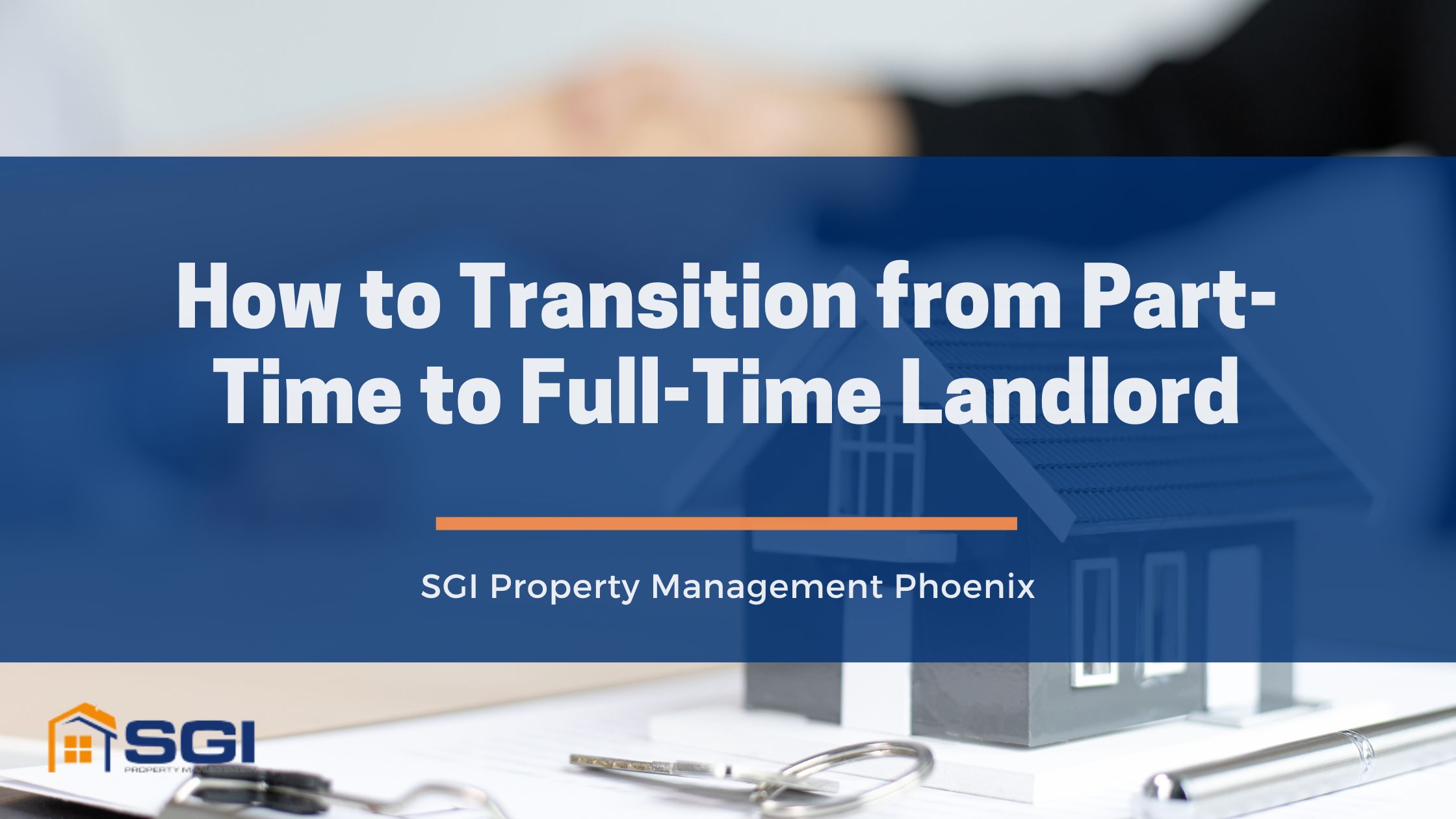
Are you ready to take your part-time self-property management gig to the next level? Transitioning to being a full-time landlord can be a challenging process, but it can be seamless with the right tools and strategies. As your property portfolio grows, so do the responsibilities and challenges that come with it.
From developing a business plan to building strong tenant relationships, you must take several essential steps to succeed in this dynamic industry. This article will explore practical tips to help you transition from part-time to full-time property management and achieve long-term success.
Expand Your Property Portfolio
Expanding your property portfolio is essential when transitioning from part-time to full-time property management. This involves acquiring more rental properties, increasing your cash flow, and enabling you to have a sustainable income. You must identify properties aligning with your investment strategy and budget to achieve this.
Conduct thorough research to determine which neighborhoods are growing in popularity and have a high demand for rental properties. When considering expanding your property portfolio, it’s essential to ensure that your existing properties are well-maintained and generate a steady stream of income.
Ensure you have enough resources to invest in additional properties without sacrificing the quality of service you provide to your current tenants. A successful expansion of your property portfolio also requires effective marketing strategies to attract potential tenants.
Develop a Business Plan
Developing a comprehensive business plan is crucial when transitioning from part-time to full-time property management. A business plan outlines your investment strategy, goals, and objectives and how you plan to achieve them. It also provides a framework for your financial projections, marketing strategies, and organizational structure.

When creating a business plan, consider your budget, the number of properties you plan to manage, your target market, and your competition. Identify the potential risks and opportunities associated with the real estate market and plan accordingly.
A solid business plan should be flexible, adaptable to changing market conditions, and align with your long-term goals and objectives.
Build a Strong Professional Network
Building a strong professional network is essential when transitioning from part-time to full-time property management.
A professional network consists of other real estate investors, real estate agents, property managers, attorneys, and accountants. This network can provide valuable resources, such as referrals, industry insights, and advice on managing your properties.
To build a strong professional network, attend real estate events, join local real estate groups, and participate in online forums. Networking also involves building relationships with current tenants, which can help attract new tenants through word-of-mouth referrals.
A strong professional network can also give you a competitive edge in the real estate market.
Consider Property Management Services
As your property portfolio expands, managing your properties may become overwhelming. Consider hiring a property management company to help you manage your rental properties.
A property management company can handle tenant screening, rent collection, maintenance, and other administrative tasks. This allows you to focus on growing your business and building strong tenant relationships.
When choosing a property management company, ensure they have a good reputation, a track record of success, and experience managing similar properties.

It’s also essential to consider their fees and the services they provide. Hiring a property manager can be an excellent investment for your business, allowing you to maximize your profits and reduce stress.
Stay Up to Date on Regulations and Laws
The real estate industry is heavily regulated, and staying current on regulations and laws is essential when transitioning from part-time to full-time property management. Laws and regulations related to rental properties can change frequently, and it’s crucial to comply with them to avoid penalties and legal issues.
Stay informed about changes to regulations and laws by subscribing to industry publications, attending seminars, and consulting with attorneys and accountants.
Ensure you have the necessary permits and licenses to operate as a property manager in your state or city. Staying current on regulations and laws can help you make informed decisions and operate your business ethically and legally.
Develop Strong Tenant Relationships
Developing strong tenant relationships is crucial when transitioning from part-time to full-time property management. Strong tenant relationships can help attract new tenants, reduce vacancy rates, and increase tenant retention.
To develop strong tenant relationships, ensure excellent customer service, respond promptly to tenant requests, and maintain open communication with your tenants.
Establishing a personal connection with your tenants can also go a long way in building strong relationships. This can involve remembering important dates, such as birthdays and anniversaries, and showing genuine interest in your tenants' lives and concerns.
Creating a positive living experience for your tenants can also help build strong tenant relationships.

This can involve maintaining clean and well-maintained properties, providing amenities, and organizing community events. This helps develop strong tenant relationships, establish a positive reputation in the real estate industry, and increase profitability.
Monitor Your Finances Closely
When transitioning from part-time to full-time property management, it’s essential to monitor your finances closely. Managing multiple rental properties can be complex, and it’s crucial to keep accurate records of your income and expenses.
Develop a system for tracking your finances, such as using accounting software or hiring an accountant.
Monitoring your finances closely also involves developing a budget and tracking your cash flow. Develop a budget that includes all your expenses, such as mortgage payments, property taxes, insurance, and maintenance costs.
This can help you identify areas where you can reduce expenses and increase profitability. Tracking your cash flow can help you identify potential problems and take corrective action before they become significant.
Conclusion
Partnering with SGI Property Management can help simplify and streamline your approach to owning rental properties. At SGI Property Management, we pride ourselves on our expertise in the real estate industry and our commitment to providing exceptional customer service.
Whether you're a seasoned real estate investor or just starting, SGI Property Management can help you achieve your goals and succeed in the competitive world of property management.
Contact us today to learn how we can help you transition from part-time to full-time property management and take your rental property business to the next level!









